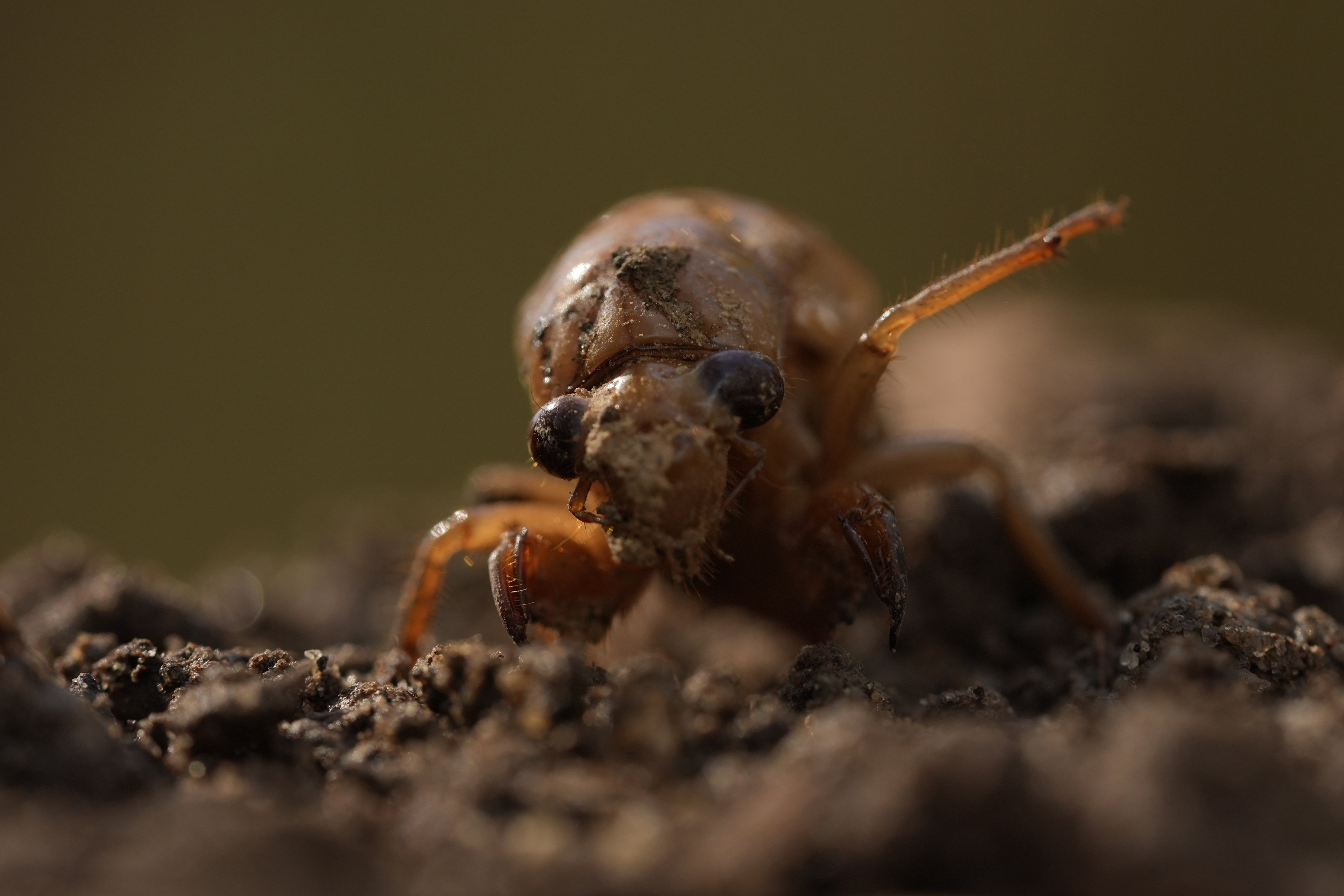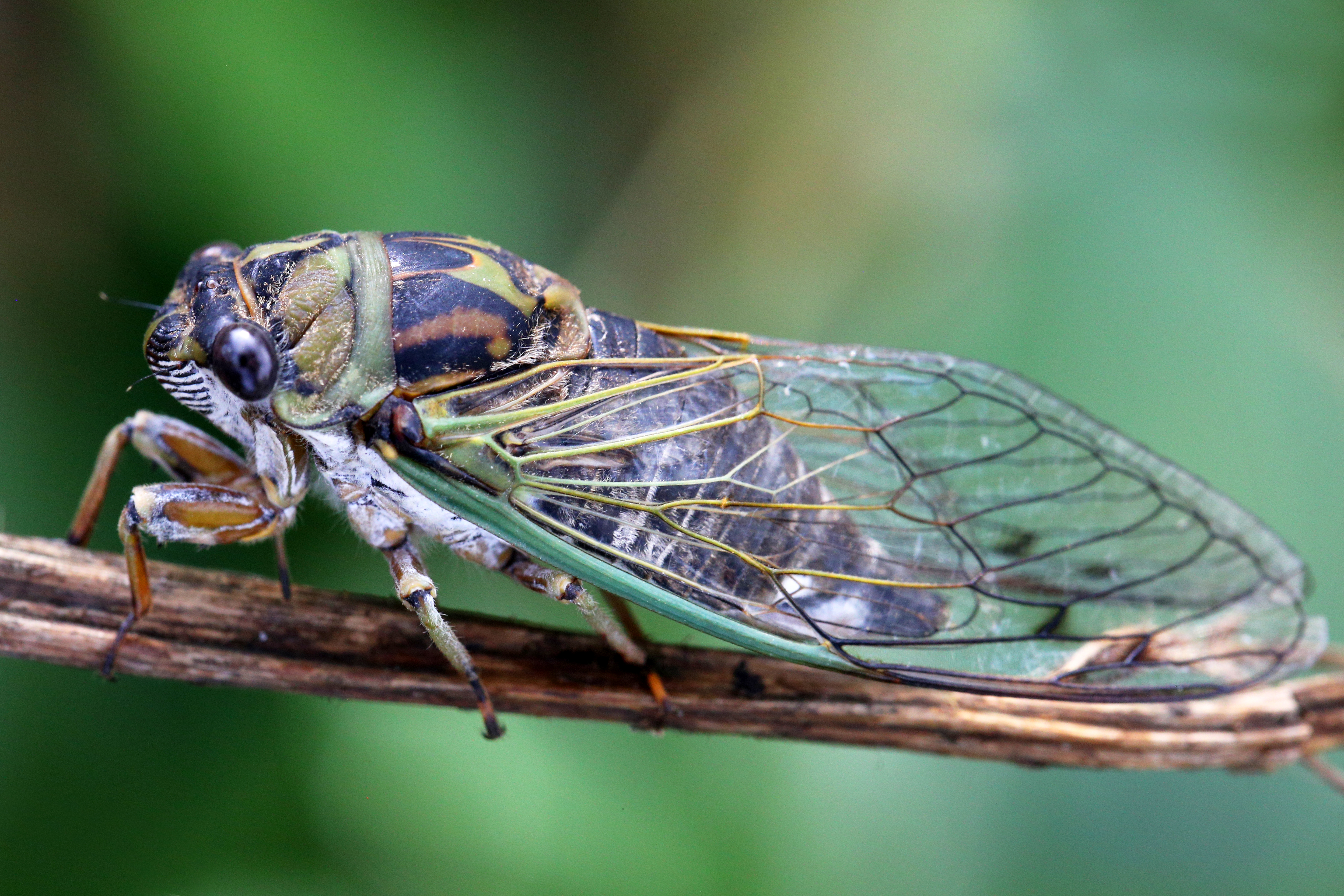While the cicada "boom" hasn't occurred just yet, you might be seeing some here and there.
The noisy insects have begun appearing as part of the 17-year emergence, though they've yet to start coming out of the ground en masse. Cicadas typically emerge as the ground begins to warm in the spring and early summer, which is usually mid-to-late May and into June.
With peak emergence expected in the next few weeks, avid gardeners are wondering if they'll need to worry about cicadas eating their plants and if they'll need to take prevention measures. What actions you should take depend on what you've planted.
First and foremost, keep in mind that cicadas are typically gentle. Also, they're not poisnous or venemous.
"Cicadas are not harmful to the environment," explained Nina Salem, founder of the Insect Asylum, a museum on Chicago's Northwest Side. "They are not harmful to you. They don't bite, they don't sting. They can't scratch."
There's more good news: cicadas don't eat plants, so they won't harm flowers or the new leaves in your gardens, according to the Morton Arboretum. But that doesn't mean they are entirely harmless.
Female cicadas can cause damage when they lay eggs on young trees and shrubs, said Stephanie Adams, plant pathologist at the arboretum.
“That damage is caused when the female starts laying her eggs,” Adams explained. “She has a specialized organ that will cut into the plants and trees and shrubs, and lay her eggs inside the thin bark.”
According to Adams, young plants, between two to three years old, are the most vulnerable, and so are smaller plants, with branches less than two inches in diameter are at risk.
Feeling out of the loop? We'll catch you up on the Chicago news you need to know. Sign up for the weekly Chicago Catch-Up newsletter here.
So, is there anything you can do?
"If you do want to help protect smaller plants, what you can get is some tulle, the things that they put under dresses and you can wrap it around your plants and make sure to seal it real quick with a stapler," Salem explained. "Make sure to get the base of it..."
The Morton Arboretum also shared similar recommendations on its website.
Homeowners should protect their young plants as soon as possible and keep them wrapped through mid-June when the emergence ends. You'll also want to put off planting new trees and shrubs until then.
Here's a map of what to expect in Illinois, according to data from the USDA Forest Service.
In general, cicadas are "not particular" -- meaning they will use a variety of trees and shrubs as hosts. While they aren't picky, the insects have been known to lay eggs in certain trees, including oak, maple, hickory, apple, birch, dogwood, linden, willow, elm, ginkgo, and pear trees, according to the arboretum.
If you're thinking about spraying pesticides, it's recommended you don't do so.
Pesticides generally aren't effective in keeping cicadas away, according to the Environmental Protection Agency.
"Spraying also doesn’t make sense because cicadas are generally harmless," a post on its website read. "Applying pesticides to control cicadas may harm other organisms, including animals that eat cicadas. Pesticides can be harmful to other non-target, beneficial insects...."
When all is said and done and the next 17-year countdown begins, homeowners will see an unexpected benefit.
After cicadas mate, they will die and their bodies will break down into the soil, adding free fertilizer for lawns, gardens, and forests.
Get updates on what's happening in the Chicago area to your inbox. Sign up for our News Headlines newsletter.




